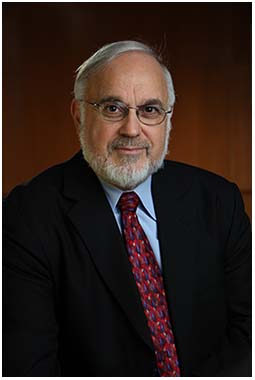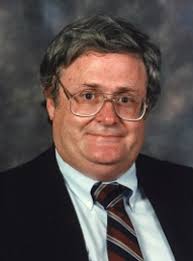by Rabbi Abraham Cooper and Dr. Harold Brackman | What’s needed on both sides of the Pond are leaders–liberal and conservative– who have the courage to call out extremists among their own—in real time.
The old joke is that the Americans and British are “divided by a common language.” Just consider Americans’ ignorance about “cricket” and most Brits’ incomprehension of “baseball.”
Politically, Americans remember such high-profile post-WWII Prime Ministers as Margaret Thatcher and Tony Blair. But they have a harder time understanding the Conservative Party’s PM Theresa May and her messy struggle with Brexit, or for that matter Jeremy Corbyn, the man who leads a British Labour Party increasingly welcoming of anti-Semites, Holocaust deniers and coddlers of terrorists.
In fact, both of the UK’s major two parties for the past 100 years—the Conservatives and Labour—could be breaking up for failing to meet the challenges of extremism. Theresa May because of her failure to unite her majority party behind a Brexit soft landing; and Opposition leader Jeremy Corbyn, who continues to fill Labour’s ranks with far-leftists while Tony Blair’s “moderates” are purged.
British Jews, who traditionally had found a home in the Labour Party voters, did not initially take seriously Corbyn’s history as an extremist firebrand who favored a review of UK arms sales to Israel because of its defensive response to armed Gaza mobs and terrorists. Corbyn defended a London mural depicting ravenous Jewish bankers taking bites out of the backs of naked Third World minorities. And he attended in Tunisia a ceremony for Palestinian terrorists who kidnapped and murdered Jewish athletes at the 1972 Berlin Olympics. A 2009 video of him expressing sympathy for Arab suicide bombers also emerged.
Corbyn defended London Mayor Ken Livingstone who was expelled by the Labour Party for claiming that that Hitler was “a staunch Zionist.”
Not since the meteoric career of Sir Oswald Mosley, leader of the British fascists in the 1930s, have UK’s Jews faced political danger of the magnitude of Jeremy Corbyn. Some 85 percent of British Jews consider him an anti-Semite, and half that number would seriously consider leaving the country in the event of his election as PM. Such a development would probably administer a death blow to the UK-U.S. “special relationship” at the heart of the NATO Alliance.
But that scenario was dealt a blow when nine Labour members of Parliament quit labor to protest his ambiguous positions on Brexit and association with anti-Semites at home and abroad.
America’s current two-party system, emerged in the 1850s when the Republican Party, opposed to the expansion of slavery, replaced the Whig Party in opposition to the Democrats.
Today, there is no US national leader espousing extremist positions on par with UK’s Corbyn. One virtue of America’s two-party system– now is under attack– is its success in preventing extremists from seizing power at the top of either national party. Until the 1960s, the Democrats made their peace with powerful Southern racist politicians who blocked legislation for racial integration, but denied them national control of the party. In 1948 and 1968, Strom Thurmond and then George Wallace broke from the Democrats to run as third-party candidates for President.
The Republicans as a party never repudiated Senator Joseph R. McCarthy’s extremist anti-Communist crusade, but Republican President Eisenhower worked behind the scenes to reduce McCarthy’s power before he was censured by a bipartisan coalition of Senators in 1956.
Today in Congress, extremist views come from members of the House of Representatives. GOP Congressman Steve King (R-IA), long guilty of flirting with fascists, went too far when he stated that he saw nothing wrong with the labels “white supremacist” and “white nationalist.” His GOP colleagues censured and stripped him of committee assignments.
Somali-born Congresswoman Ilhan Omar (D-MN) along with Rashida Tlaib (DMI)- have criticized Jews and Israel that resulted in their characterization as “extremists.” In 2012, Omar tweeted: “Israel has hypnotized the world, may Allah awaken the people and help them see the evil doings of Israel.” Omar never stopped labeling the Jewish state as an “apartheid regime.” Under political pressure, Omar clarified that she was “befuddled” when she made her “unfortunate” word choice in 2012. As of today, she favors a draconian boycott of Israel—but no sanctions on the authoritarian Maduro regime in Venezuela.
Finally, Omar asserts that Israel’s new nation state law “does not recognize the other religions that are living in it.” She equates democratic Israel with repressive Iran.
Back in the Minnesota legislature, Omar asked a judge for a lenient sentence for nine convicted Somali-American terrorists.
Most recently, she smeared the American Jewish activism on behalf of the US-Israel alliance, thusly: “It’s all about the Benjamins baby…”
Faced with multiple embarrassments from Omar, House Speaker Nancy Pelosi belatedly passed a critical statement, but did not Omar by name, nor did she cancel Omar’s coveted position on the prestigious House Foreign Affairs Committee.
Jeremy Corbyn’s long career in the British House of Commons shows how massive oak trees can grow from little acorns. Today, ideological and demographic shifts, affecting especially in the U.S. House of Representatives, may have ended the long period when “friends of Israel” in both parties predominated. There is nothing wrong with politicians sympathetic to the Muslim and Arab Middle East finding a voice, but that voice cannot be accepted in the mainstream if it validates violent extremists and demagogues who seek the demise of an independent Jewish state.
But America’s challenge from political extremists goes beyond the Middle East. An avowed Nazi garnered 56,000 votes in the November 2018 general election in the Chicago area. A Holocaust denier ran on the Republican ticket in California.
What’s needed on both sides of the Pond are leaders–liberal and conservative– who have the courage to call out extremists among their own—in real time.
Silence is not an option. Silence leaves political and social voids that will be filled by those who lack the vision to build but who possess the power to destroy.
 Rabbi Abraham Cooper is the Associate Dean, Director Global Social Action Agenda of the Simon Wiesenthal Center, a leading Jewish human rights organization with over 400,000 family members.
Rabbi Abraham Cooper is the Associate Dean, Director Global Social Action Agenda of the Simon Wiesenthal Center, a leading Jewish human rights organization with over 400,000 family members.
 Dr. Harold Brackman, an author and consultant to the Simon Wiesenthal Center. He has published widely, both in journalism and in scholarship. Check out his book, coauthored with Ephraim Isaac, “From Abraham to Obama: A History of Jews, Africans, and African Americans.”
Dr. Harold Brackman, an author and consultant to the Simon Wiesenthal Center. He has published widely, both in journalism and in scholarship. Check out his book, coauthored with Ephraim Isaac, “From Abraham to Obama: A History of Jews, Africans, and African Americans.”